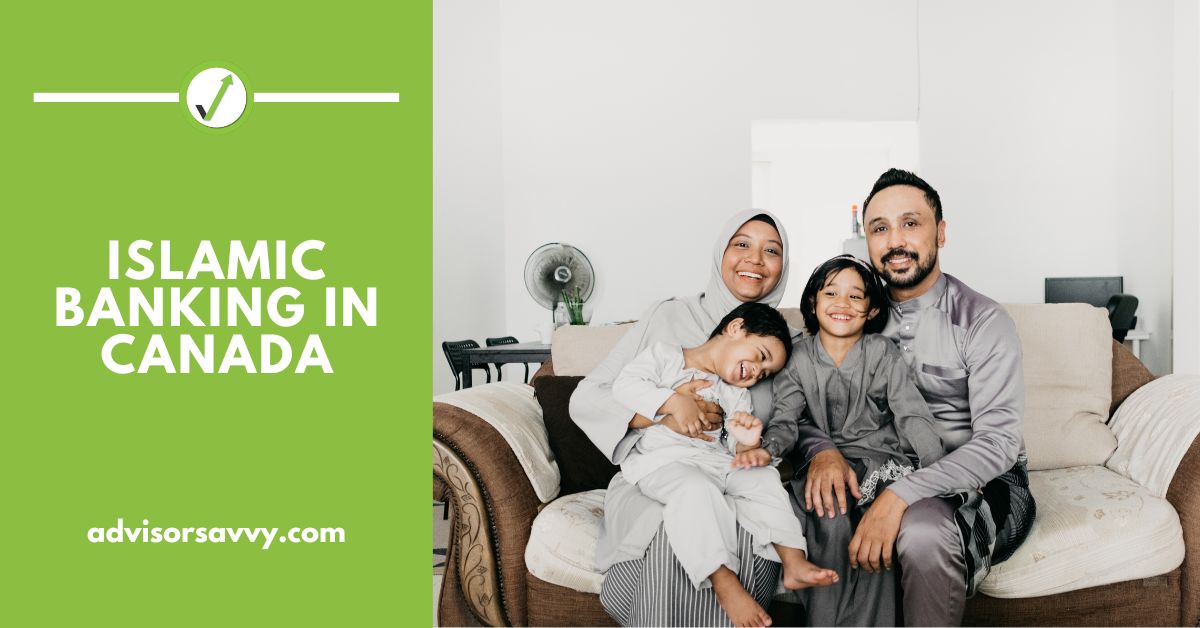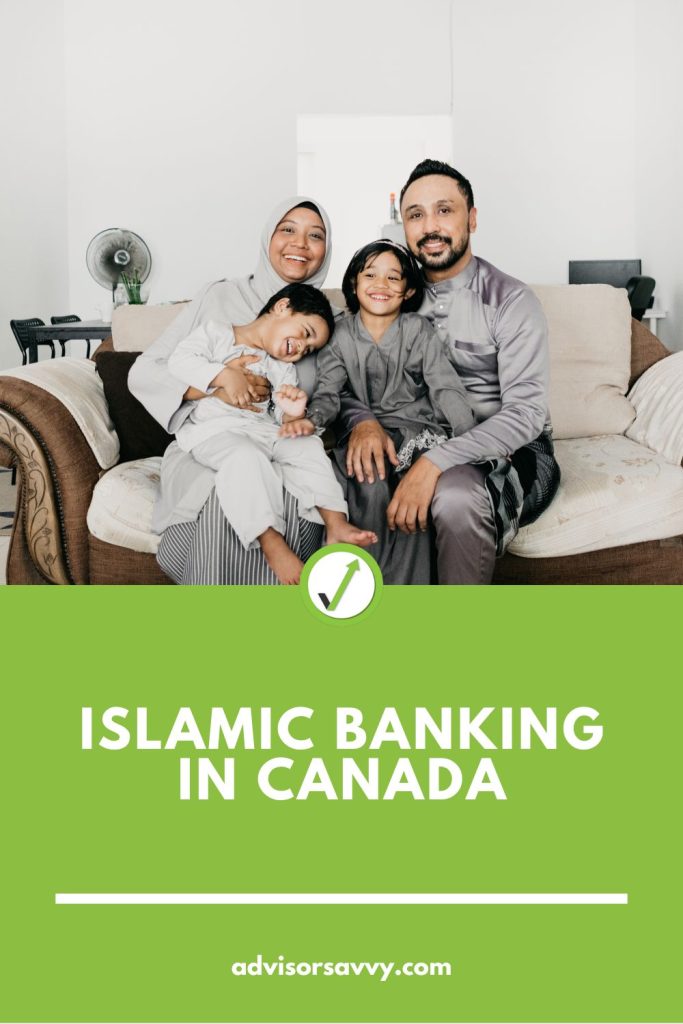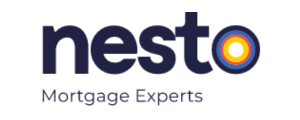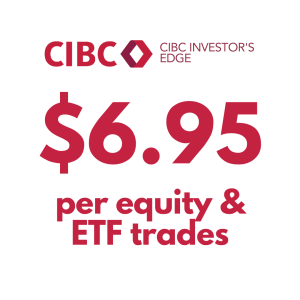
Did you know there’s more than one style of banking? Most Canadians are familiar with conventional banking, credit unions, and financial services companies, but there is also Islamic banking to consider. Overall, the most distinct characteristic of Islamic banking is that the charging and collection of interest is prohibited. Instead, Islamic banking institutions engage in profit sharing systems to earn money. In this article, we’ll discuss everything you need to know about Islamic banking in Canada, including what a halal mortgage is and where you can seek this type of banking service. Keep reading to learn more!

Table of contents
What is Islamic Banking in Canada?
Islamic banking consists of financial practices and activities that are compliant with Shariah (Islamic law). The notions of Islamic banking in Canada and elsewhere stem from Islam which is a major world religion. Further, these ideologies are derived from the Quran, which is the central religious text of Islam. Within this religion, it is believed that a loan is supposed to be a charitable gesture; a way for one person to help another who is struggling. For this reason, charging interest is seen as highly unethical and a way of exploiting someone in need.

Get the lowest mortgage rates and mortgage rate holds in Canada
There are over 500 banks in the world that apply Islamic principles to their operations. While it is not the dominant form of banking in Canada, it’s prominently used in many parts of the world. There are two fundamental principles of Islamic banking. The first is the sharing of profit and loss. The second is the prohibition of charging and collecting interest by lenders. Islamic banking is often called Islamic finance or Shariah-compliant finance.
In contrast to Islamic banking, there is conventional banking. In Canada, conventional banking is quite common. This style of banking allows for the business of lending money and charging interest. In other words, conventional banking treats money as a commodity that can be sold. But Islamic banking simply considers money to be a mode of exchange.
What is not allowed in Islamic banking?
Islamic banks are not allowed to charge and collect interest on monies they extend to borrowers. The belief is that the practice of charging interest is unethical and usurious. In addition, any investments related to items or substances that are prohibited in the Quran, such as alcohol, pork or gambling, are forbidden as investment opportunities.
Related Reading: What is a fee only financial planner?
How do Islamic banks make money?
By this point, you may wonder how Islamic banks make money if they aren’t allowed to charge and collect interest. They are able to earn a profit through an equity participation system. Sometimes this system is referred to as profit sharing. How an equity participation system works is the borrower gives the bank, lender or investor a share of their profits in exchange for the financing.
But what if the business turns a loss, rather than earning a profit? If the business losses money, so does the bank. As a result, Islamic banks tend to be more conservative and risk-averse when making lending decisions. Banks that charge interest will earn money so long as the entity is making their payments. But Islamic banks only earn money when the entity profits. Often, this means they avoid industries where an economic bubble might exist.
Islamic banks can charge fees for their services, such as an initiation fee or an overlimit fee. This is another way they can make money on their service offerings. However, the fees should be transparent and determined before engaging in business to remain ethical.
Related Reading: Second Mortgage Rates in Canada

Get the lowest mortgage rates and mortgage rate holds in Canada
What is a halal mortgage in Canada?
Halal is an Arabic word that translates to ‘permissible’ or ‘allowable’. Further, riba is the word used for interest. You may have seen the word halal at the grocery store, but it extends to other aspects of life, not just food intake. Muslims cannot eat meat that has not been blessed, and they also can’t utilize conventional mortgages because the payment of interest goes against their religious beliefs. Instead, they will seek out halal, riba-free mortgages.
A halal mortgage is a mortgage that uses an equity participation system instead of charging interest. The relationship between the borrower and the lender is much different with a halal mortgage. There are a number of ways the borrower and lender achieves their goal together. Below are the three main types of halal mortgages that all use riba-free tactics:
Types of Halal Mortgages
- Musharakah: This is a form of co-ownership between the buyer and the financier. In a sub-type called Diminishing Musharakah, or the Declining Balance Method, the buyer gradually buys out the financier’s share of the property. They also pay a fee to use the part of the property still owned by the financier until the share is paid out.
- Ijara: Under this form of halal financing, the buyer is essentially applying a lease-to-own arrangement. The financier purchases the property and the buyer rents it from them. A portion of their rent payment goes towards future ownership of the property. Once the full repayment is achieved, the financier transfers the property title to the buyer.
- Murabaha: In this model, the financier purchases the home and sells it to the buyer on a deferred payment basis. The buyer pays a deposit and gives repayment to the financier over a period of time. This includes a profit charge, which is agreed upon at the time the agreement is arranged. Murabaha mortgages are the most similar to conventional mortgages, but it is not a loan with interest. It is a resale with a deferred fee.
Why are mortgages not halal?
Conventional mortgages work differently from halal mortgages. With a conventional mortgage, a borrower approaches a lender to obtain a loan to buy a property. The lender is not involved in the purchase at all, except for providing the funds. In exchange for this service, the borrower pays interest with each mortgage repayment they send the lender. The title of the property is in the borrower’s name; the lender isn’t involved with ownership at all. This kind of lending is not halal because money is being treated as a commodity that can be sold for profit. In other words, the charging of interest isn’t halal.
Related Reading: How Does A Mortgage Work In Canada?
Does Canada have an Islamic bank?
Canadians who are interested in accessing Islamic banking and halal mortgages have options. Given that Canada is a multicultural place, a few Islamic banks have set up operations. Unfortunately, Canada’s big banks do not usually extend halal mortgages or other types of Islamic financing options. For this reason, you may need to do some research and talk to people in your community to find the best option. Alternatively, you may need to work with private lenders who offer loans that are in alignment with Islam.
Is there any Islamic mortgage in Canada?
Yes, you can obtain Islamic mortgages in Canada. There are three main options:
- Canadian Halal Financial Corporation. You can obtain either a Murabaha or Musharakah agreement with this entity.
- Eqraz. This Islamic bank uses a Murabaha-based mortgage. Eqraz was founded by Syed Zuhair Naqvi in 2017.
- Manzil. Both Murabaha and Musharaka-based mortgages are offered with this institution.
Unfortunately, none of these entities are CDIC insured at the time of writing. This means you risk losing deposits if the entity goes bankrupt. However, this mainly applies to savings and investment accounts, not mortgages. Although, Islamic banks tend to be more conservative and risk-averse in their decision making so the need for insurance is not as high as it is with conventional banks.
Related Reading: Banking vs Financial Services: What’s the difference?
Can anyone get an Islamic mortgage?
Yes, anyone can get an Islamic mortgage, they are not solely reserved for Muslims. Non-Muslims may be interested in getting an Islamic mortgage to experience a more ethical form of banking and financing.
There can be additional challenges obtaining a halal mortgage compared to a conventional mortgage. For instance, a larger down payment is typically required, sometimes as high as 25%. Compared to the minimum 5% required for conventional mortgages. Furthermore, it can be challenging to find a suitable lender in Canada with limited options. Despite these additional challenges, it can be a rewarding experience.
Related Reading: How many bank accounts should you have?
CIBC Investor’s Line Offer
Up to $6.95 per online stock or ETF trade. Plus, there’s no minimum account balance.
Islamic Banking in Canada
In Canada, we are fortunate to live among a wide variety of cultures. This makes for a diverse community and the opportunity for unique experiences. Islamic banking is something that has popped up in Canada to meet the banking needs of Muslim communities and those who wish to engage in more ethical finance practices. If you need help finding an Islamic bank or obtaining a halal mortgage, a financial advisor can help. Complete this quick questionnaire to be matched with one today!
Read More: Mistakes to Avoid When Paying Off Your Mortgage Early

